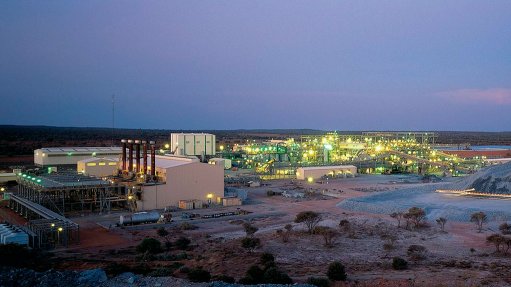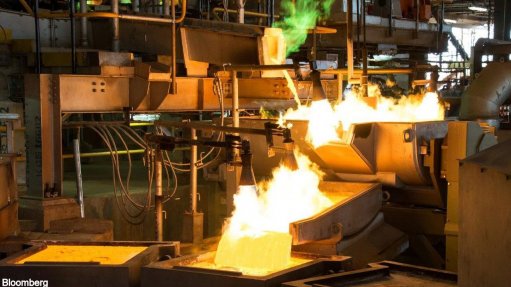Israel in bid to deploy its cutting-edge water technologies in the mining sector
Israel, renowned for its cutting- edge water technologies, is pushing for these innovations to be deployed in the global mining sector, where pressure to extract resources in an environ- ment-friendly manner is mounting.
Spurred on by a scarcity of freshwater resources, Israeli companies have, over the last few decades, developed effluent recycling and desalination technologies that, coupled with efficient- use initiatives, have seen the country attain water self-sufficiency. Now it can even afford to export water to neighbouring Jordan and Palestinian territory.
The current push is for these technologies to be adapted for use by the mining sector, says Niv Morag, from the water sector at the Israel Export and Inter-national Cooperation Institute.
“We have the technology in this country to clean water and reuse it, and also to use it in an efficient way.
“What the companies can do is to adapt the technology for use in the mining industry,” Morag tells Mining Weekly, adding that Israeli government funding is available for companies wishing to undertake the relevant research and development (R&D).
Should the R&D result in a promising technological innovation, the Israeli government would assist the developer in having the technology pilot-tested in a coun- try with an established mining industry, such as Australia. This is because Israel’s mining industry is miniscule, comprising small-scale coal and salt extraction.
If the piloting confirms the feasibility and viability of the technology, it will then be marketed in the major mining regions of the world, which, besides Australia, include Africa and South and North America.
“We would want to target Africa – and all the other regions, of course. Africa has a huge mining industry,” says Morag. He hastens to add that, over the last 15 years, some Israeli-developed water-related technologies have made inroads into the global mining industry.
The South African mining industry is not under the radar of Israeli companies seeking a market for their water technologies.
Mapal Green Energy, for instance, has been pitching its floating fine-bubble aeration system for the treatment of waste- water to the coal division of a local diversified mining house. The system, which is already being used to treat municipal wastewater in Israel and elsewhere, does not include submerged electro- mechanical equipment and features a simple process control mechanism.
For this reason, Mapal CEO Zeev Fisher tells Mining Weekly, replacing floating or fixed aerators with the company’s floating fine-bubble aeration system can reduce operating and maintenance costs by up to 70%.
Fisher, a mechanical engineer, who spent time in South Africa working at the Sappi plant in Springs, on Gauteng’s East Rand, adds that the Mapal system consumes significantly less energy than conventional systems.
The Mpumalanga-based coal mine to which Mapal hopes to sell the system has successfully undertaken a pilot-testing exercise but the decision to cut a deal has yet to be made.
Fisher believes that the system, given its low initial capital and operating and maintenance costs, as well as low electricity consumption, could come in handy in the South African mining industry, which is grappling with the challenge of acid mine drainage (AMD).
The reclaimed wastewater could be used in mining processes, thus reducing mining operations’ requirements for costly freshwater.
It is not only the South African mining industry that has shown more than a passing interest in Mapal’s system – the municipal sector has also shown its keenness.
In fact, the system has been piloted at a Gauteng municipal wastewater works in conjunction with a University of Pretoria professor, says Fisher.
He is optimistic about Mapal’s prospects in the South African municipal sector, where there has been negligible infrastructure investment in recent years, despite the fact that a huge number of homes have been connected to municipal reticulation systems in the last 15 years. As a result, some of the infrastructure is “on the verge of collapse”.
Fisher says Mapal could upgrade this infrastructure by installing its system at a far less cost than would be the case if conventional systems were used.
As an indication of its resolve to do business in South Africa, Mapal has appointed a local agent.
Meanwhile, Universal Environ-mental Technologies (UET), which developed an industrial water-treating process that does not entail the use of chemical additives more than 20 years ago and supplied its solutions to the South African mining industry until a few yeas ago, says it would make a comeback if it found a local joint venture (JV) partner with financial muscle.
Says the company’s president and CEO, David Sherzer: “There are big international water-technology companies that are active in the South African water sector, so we need to set up a big JV to be able to compete.
“The partner should have a yearly turnover of $20-million to $30-million in order for the JV to be a significant player in this market.”
On the African continent, UET currently supplies its water treatment solutions to the Zambian mining sector, “where we have lots of projects”.
Sherzer discovered the UET technology while working on a thesis for a doctorate in chemical engineering.
“I decided I was not going to submit the thesis and chose to patent the process I had discovered. I do not regret that decision at all.”
Since the process does not involve the use of chemical additives, the retreated water can be released into the environment or be used for other applications.
“With our process, there is no handling of hazardous chemicals and the price is about half that of chemical-based processes,” says Sherzer.
Also eyeing the South African mining market is Global Environ-mental Solutions (GES), which, besides others, focuses on the treatment of “difficult” wastewater and water desalination.
Strategic development manager Tsahi Reich says, while GES has not done any work for the mining industry to date, its solution that treats “difficult” wastewater is capable of treating AMD.
The company says it intends to eventually have an agent in this country. “We want to have someone who is familiar with the situation in South Africa,” he says.
These technologies and lots more will be showcased at the biennial Watec conference and exhibition, to be held in Tel Aviv from October 22 to 24. The 2011 edition of Watec attracted 270 exhibitors from across the globe. About 27 000 visitors from 104 countries went through the portals of the conference and exhibition venue. This number included 40 Ministers of Water from five continents and members of 150 official delegations.
•
Zhuwakinyu visited Israel last month as a guest of the Israel Export and International Cooperation Institute.
Comments
Press Office
Announcements
What's On
Subscribe to improve your user experience...
Option 1 (equivalent of R125 a month):
Receive a weekly copy of Creamer Media's Engineering News & Mining Weekly magazine
(print copy for those in South Africa and e-magazine for those outside of South Africa)
Receive daily email newsletters
Access to full search results
Access archive of magazine back copies
Access to Projects in Progress
Access to ONE Research Report of your choice in PDF format
Option 2 (equivalent of R375 a month):
All benefits from Option 1
PLUS
Access to Creamer Media's Research Channel Africa for ALL Research Reports, in PDF format, on various industrial and mining sectors
including Electricity; Water; Energy Transition; Hydrogen; Roads, Rail and Ports; Coal; Gold; Platinum; Battery Metals; etc.
Already a subscriber?
Forgotten your password?
Receive weekly copy of Creamer Media's Engineering News & Mining Weekly magazine (print copy for those in South Africa and e-magazine for those outside of South Africa)
➕
Recieve daily email newsletters
➕
Access to full search results
➕
Access archive of magazine back copies
➕
Access to Projects in Progress
➕
Access to ONE Research Report of your choice in PDF format
RESEARCH CHANNEL AFRICA
R4500 (equivalent of R375 a month)
SUBSCRIBEAll benefits from Option 1
➕
Access to Creamer Media's Research Channel Africa for ALL Research Reports on various industrial and mining sectors, in PDF format, including on:
Electricity
➕
Water
➕
Energy Transition
➕
Hydrogen
➕
Roads, Rail and Ports
➕
Coal
➕
Gold
➕
Platinum
➕
Battery Metals
➕
etc.
Receive all benefits from Option 1 or Option 2 delivered to numerous people at your company
➕
Multiple User names and Passwords for simultaneous log-ins
➕
Intranet integration access to all in your organisation


















